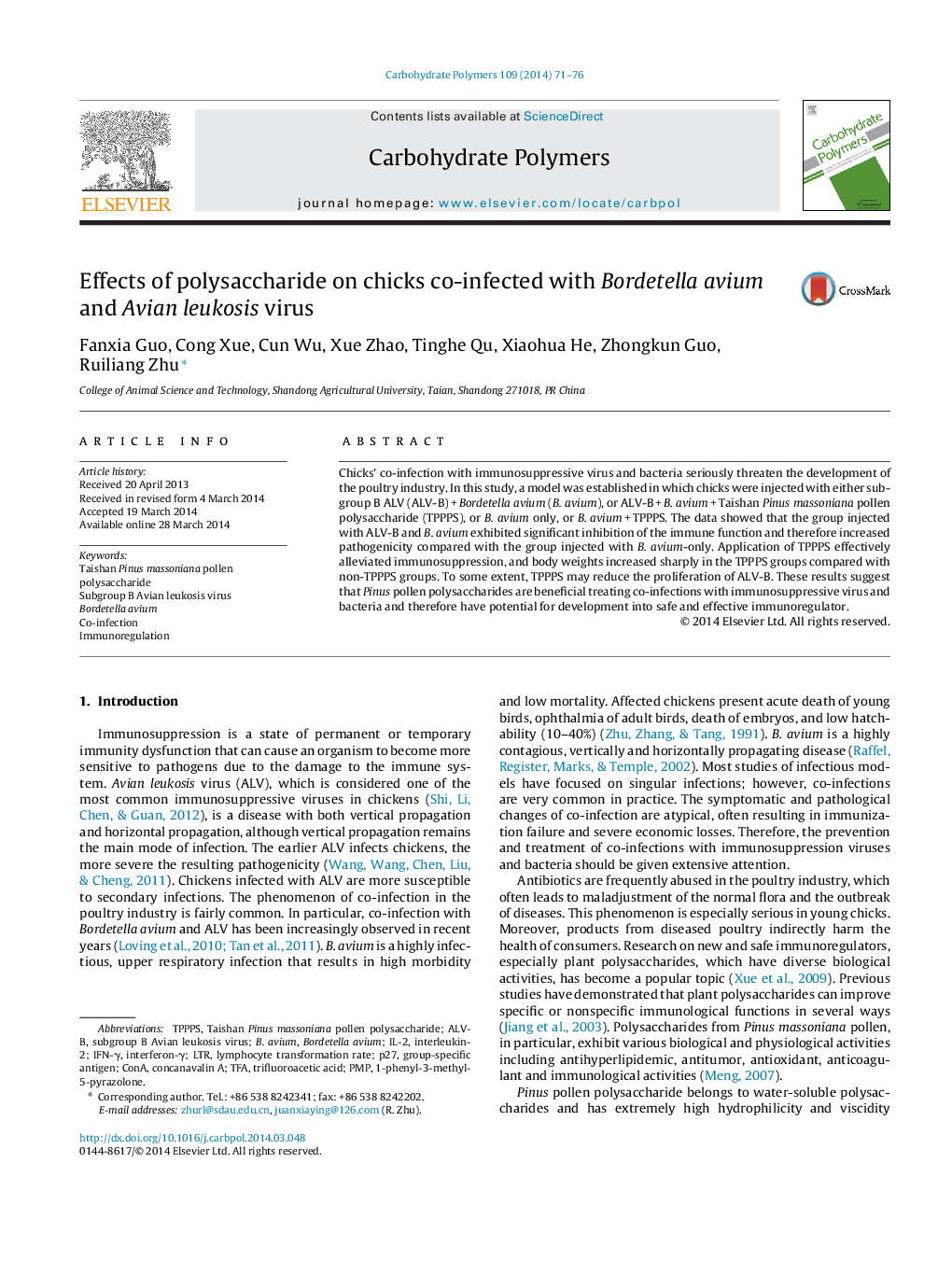| Article ID | Journal | Published Year | Pages | File Type |
|---|---|---|---|---|
| 1383498 | Carbohydrate Polymers | 2014 | 6 Pages |
•The composition and content of monosaccharide in TPPPS were firstly analyzed.•TPPPS can significantly eliminate immunosuppression and can serve as immunoregulator.•The pathogenicity of B. avium in chicks which co-infected with ALV-B was exacerbated.•TPPPS can enhance the immunity and resist to diseases in chicks.
Chicks’ co-infection with immunosuppressive virus and bacteria seriously threaten the development of the poultry industry. In this study, a model was established in which chicks were injected with either subgroup B ALV (ALV-B) + Bordetella avium (B. avium), or ALV-B + B. avium + Taishan Pinus massoniana pollen polysaccharide (TPPPS), or B. avium only, or B. avium + TPPPS. The data showed that the group injected with ALV-B and B. avium exhibited significant inhibition of the immune function and therefore increased pathogenicity compared with the group injected with B. avium-only. Application of TPPPS effectively alleviated immunosuppression, and body weights increased sharply in the TPPPS groups compared with non-TPPPS groups. To some extent, TPPPS may reduce the proliferation of ALV-B. These results suggest that Pinus pollen polysaccharides are beneficial treating co-infections with immunosuppressive virus and bacteria and therefore have potential for development into safe and effective immunoregulator.
